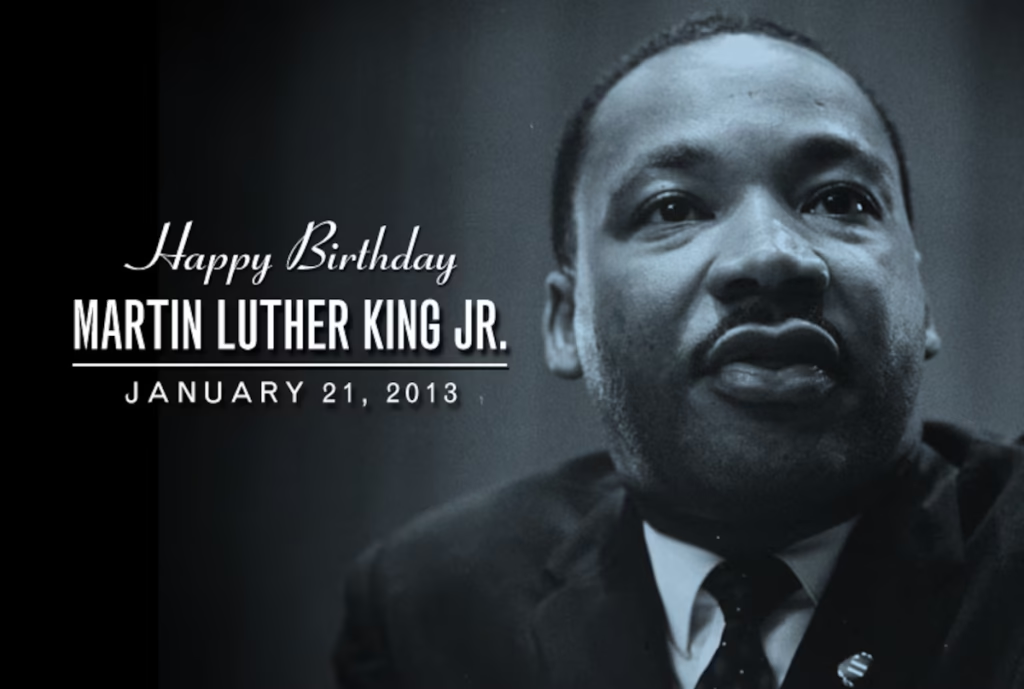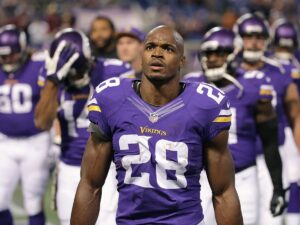
Today We Celebrate Dr. Martin Luther King Jr.: A Legacy of Hope, Unity, and Justice
On January 20, 2025, millions across the United States and around the world come together to honor the life and legacy of Dr. Martin Luther King Jr., a man who forever changed the course of history and helped shape the path toward racial equality and justice. As we celebrate his birthday and the enduring impact of his work, we are reminded of the vision he had for a more just and inclusive society, and the ongoing struggles that continue to demand his message of love, equality, and peace.
Dr. King’s legacy, born from his tireless efforts in the Civil Rights Movement, continues to inspire generations of activists, leaders, and citizens to strive for a world where justice and equality are not just ideals, but realities. On this day, we reflect on the profound ways in which his work has shaped the world we live in today, while also acknowledging that the pursuit of his dreams remains a work in progress.
A Life Dedicated to Service
Dr. Martin Luther King Jr. was born on January 15, 1929, in Atlanta, Georgia. From a young age, he exhibited an extraordinary sense of empathy, justice, and an unwavering commitment to serving his community. A gifted student, King went on to study at Morehouse College, where he was deeply influenced by the teachings of his father and other religious and social leaders, including the teachings of Mahatma Gandhi, which would later shape his philosophy of nonviolent resistance.
King’s path to leadership in the Civil Rights Movement began after he was called to the pulpit in Montgomery, Alabama, where he became a leading figure in the Montgomery Bus Boycott of 1955. In the wake of Rosa Parks’ arrest for refusing to give up her seat on a segregated bus, King emerged as an advocate for nonviolent protest and civil disobedience. The boycott, which lasted over a year, led to a landmark Supreme Court ruling declaring segregation on public buses unconstitutional.
The success of the Montgomery Bus Boycott was just the beginning. Dr. King’s leadership, vision, and commitment to nonviolence would take him to the forefront of one of the most important social movements in American history. His speeches, writings, and actions inspired millions to join the struggle for civil rights, and his call for equality resonated across racial, economic, and geographic lines.
The Fight for Equality: A Movement Transformed
Dr. King’s message of equality was not confined to the specific issue of segregation; he envisioned a society where all people, regardless of race, creed, or background, would have the opportunity to thrive. His leadership helped propel the Civil Rights Movement into the national spotlight, bringing attention to the systemic racism, discrimination, and disenfranchisement that Black Americans faced. His ability to unite diverse groups around the cause of justice, coupled with his commitment to nonviolent resistance, became a hallmark of his activism.
One of Dr. King’s most iconic moments came on August 28, 1963, when he delivered his “I Have a Dream” speech on the steps of the Lincoln Memorial in Washington, D.C. In front of a crowd of over 250,000 people, King articulated a vision of a future where racial harmony prevailed and the shackles of segregation and inequality were broken. His words echoed through the hearts and minds of those in attendance and reached millions more via radio and television, leaving an indelible mark on the collective consciousness of the nation.
“I have a dream that one day every valley shall be exalted, every hill and mountain shall be made low, the rough places will be made plain, and the crooked places will be made straight; and the glory of the Lord shall be revealed, and all flesh shall see it together,” King proclaimed. This dream — of freedom, of justice, of equality — remains a guiding light for the pursuit of civil rights in the 21st century.
But King’s work did not stop with rhetoric; his advocacy and leadership were instrumental in achieving legislative change. His work, alongside other civil rights leaders, led to the passage of landmark legislation such as the Civil Rights Act of 1964 and the Voting Rights Act of 1965, which prohibited discrimination on the basis of race, color, religion, sex, or national origin, and protected voting rights for African Americans. These victories were hard-won and represented a significant step forward in the fight for racial equality.
The Power of Nonviolence
What set Dr. King apart from other leaders of his time was his steadfast commitment to the philosophy of nonviolence. Drawing inspiration from the teachings of Gandhi, King advocated for peaceful protest, civil disobedience, and direct action as tools to bring about social change. He believed that through nonviolent resistance, individuals could confront injustice without resorting to violence or hatred.
This philosophy was put to the test on numerous occasions, particularly during moments of violent backlash against the Civil Rights Movement. Dr. King’s unwavering commitment to peace and nonviolence was evident even in the face of brutality. When his home was bombed during the Montgomery Bus Boycott, he did not respond with anger or revenge. Instead, he called for calm and urged his followers to continue their peaceful protests.
In his famous “Letter from Birmingham Jail,” written in April 1963 while he was imprisoned for protesting in Birmingham, Alabama, King articulated the moral and ethical basis for his commitment to nonviolent resistance. “Injustice anywhere is a threat to justice everywhere,” he wrote, urging citizens to act against the injustice they saw, but to do so with love and compassion, not violence or hate.
His philosophy of nonviolence left a lasting legacy, not only within the context of the Civil Rights Movement but also in other social and political movements worldwide. Dr. King’s example of peaceful resistance has inspired countless movements for justice, including those advocating for women’s rights, LGBTQ rights, labor rights, and environmental justice.
The Ongoing Struggle for Justice
Though Dr. King’s life was tragically cut short when he was assassinated on April 4, 1968, his vision for a just society lives on. In many ways, his work is far from complete. While significant strides have been made in the fight for civil rights, issues of racial inequality, economic injustice, and police violence continue to persist in the United States and around the world.
The ongoing fight for justice has been reignited in recent years through movements such as Black Lives Matter, which addresses issues of police brutality, systemic racism, and inequality. These movements carry the torch of Dr. King’s legacy, and his calls for justice and equality continue to inspire activists around the world. As Dr. King once said, “The arc of the moral universe is long, but it bends toward justice.” However, it is up to the generations that follow to ensure that the arc continues to bend in the right direction.
Today, we are reminded that the struggle for racial equality is not a single event or a singular victory, but a continuous effort that requires the commitment of every generation. It is in honoring Dr. King’s legacy that we are called to act — to challenge injustice wherever it exists, to strive for equality in every aspect of our society, and to work toward a world where love and unity triumph over hate and division.
Celebrating Dr. King’s Legacy Today
As we celebrate Dr. Martin Luther King Jr. today, we reflect not only on the remarkable achievements of his life but also on the work that remains to be done. In schools, churches, community centers, and public spaces, individuals and organizations are gathering to reflect on Dr. King’s life, engage in community service, and discuss the ongoing challenges to racial and social justice.
The MLK Day of Service, which encourages individuals to give back to their communities through acts of kindness and service, embodies the spirit of Dr. King’s teachings. This day reminds us that, while we have made progress, we each have a responsibility to continue the work of creating a more just, equitable, and inclusive society. Whether it’s through volunteering, donating, or simply educating ourselves and others, we can all contribute to making Dr. King’s dream a reality.
Conclusion
Dr. Martin Luther King Jr. remains one of the most important figures in American history, and his influence is still felt today. As we celebrate his legacy on this important day, we honor his dedication to nonviolence, equality, and justice. Dr. King’s life was one of courage and compassion, and his message of love and unity continues to guide us as we work to create a world where all people are treated with dignity and respect.
As we reflect on Dr. King’s dream, we must remember that it is not just a dream for one generation, but a vision that must be carried forward by all of us. We owe it to his memory — and to the generations that will come after us — to keep working for a society where justice truly flows like a mighty river, and where every person is judged not by the color of their skin, but by the content of their character.





